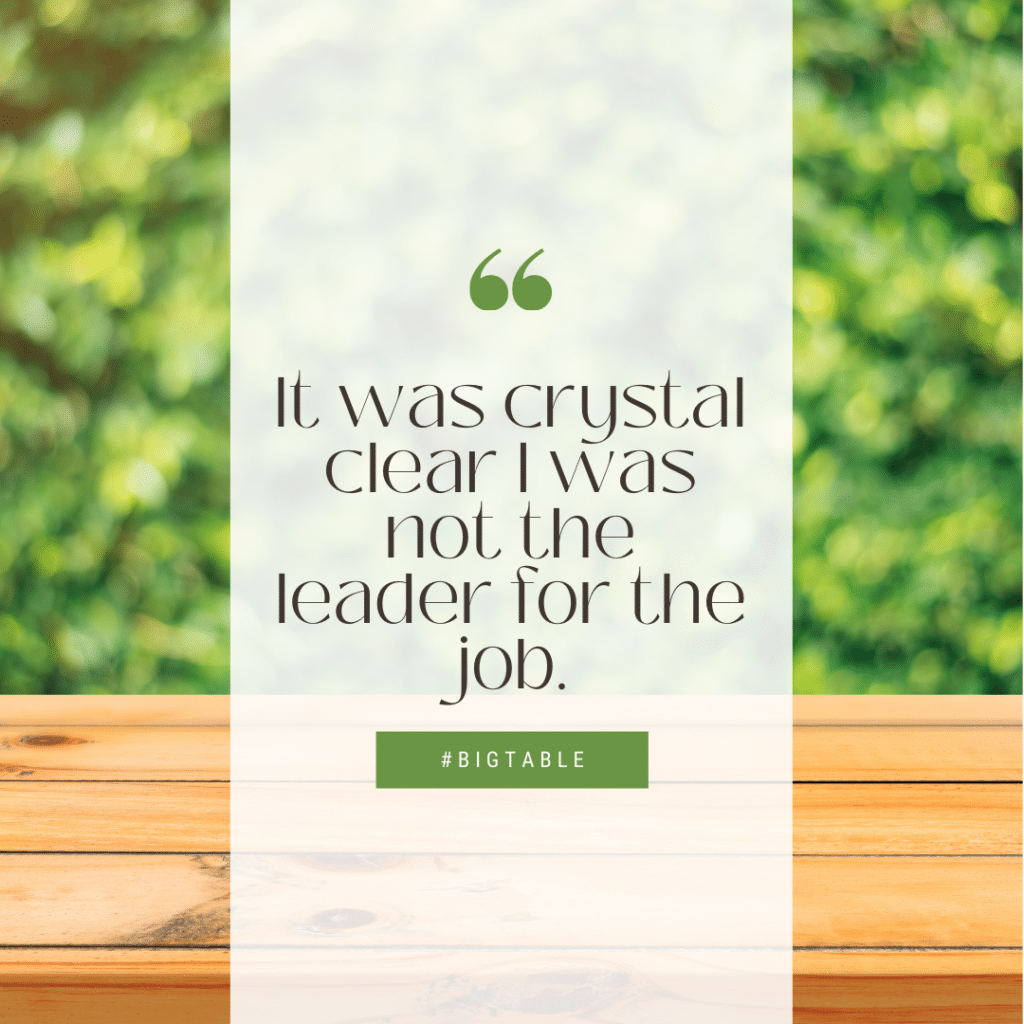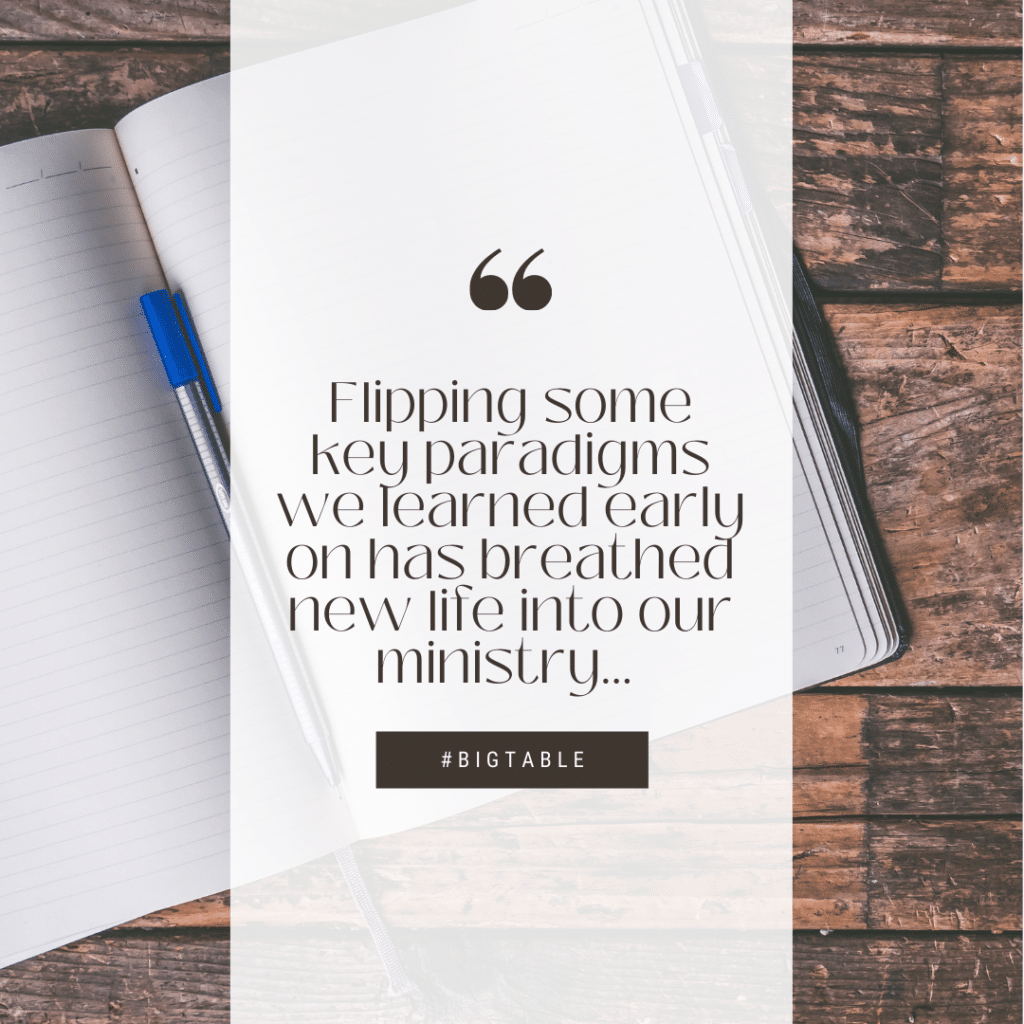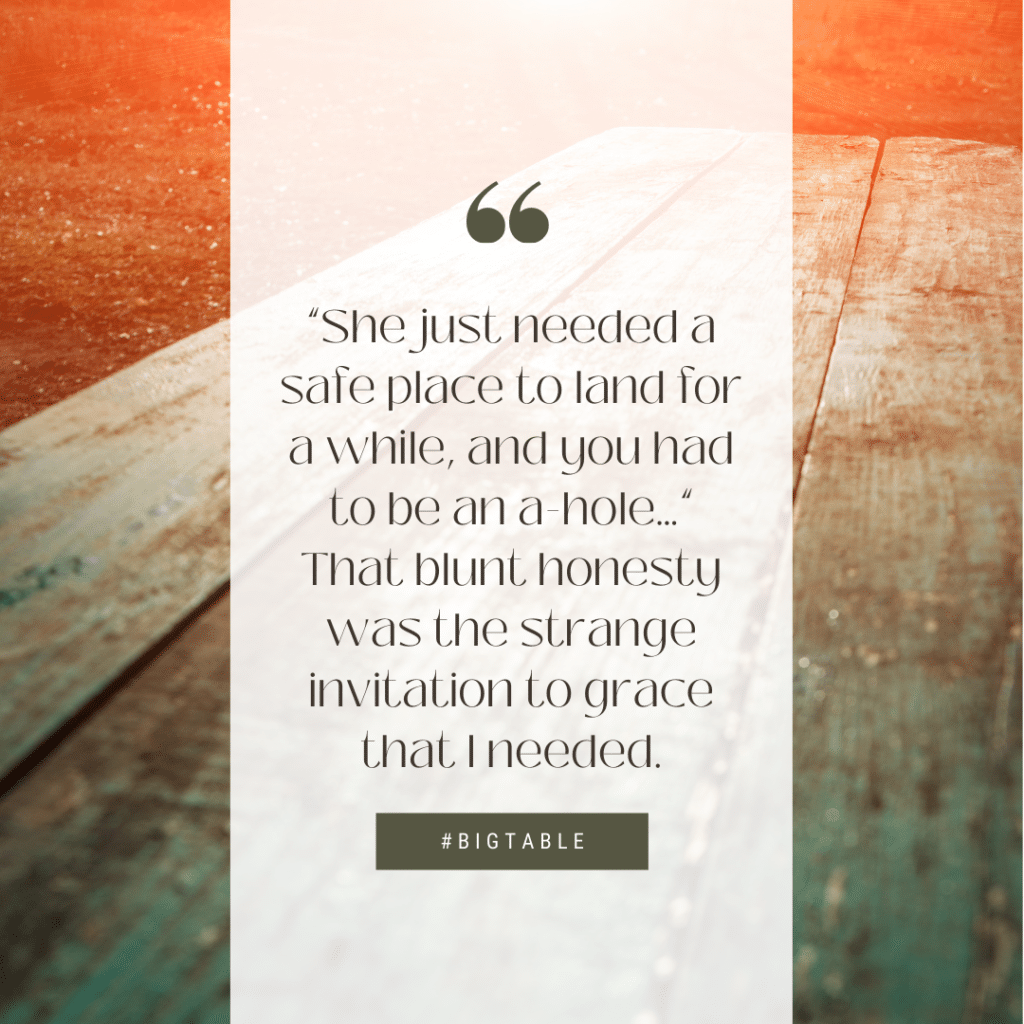Our time with others in the postevangelical space this fall (from the Post Evangelical Collective to the W/ Collective and Launchpad Partners, not to mention the Faith + Justice Network) was such a gift. Now what lies ahead? After reflecting on some of the blessings and burdens that came with being evangelical for so long, we’re wrapping up 2022 with a future orientation. Let’s talk about what gives us hope in this new postevangelical space.
What about the future gives you hope as a postevangelical?
Bill
When I really started questioning my evangelical faith, a wave of sheer terror swept over me. I’d been told (and passed on to others, I’m afraid) that I would lose Jesus if I questioned too much. On top of that, I shed plenty of anxious tears about doubting the inerrancy of scripture, my curiosity about including queer people in the church, and my suspicions about church hierarchy.
But now the future looks bright. I can honestly say I’ve never known or loved Jesus more. I’ve never engaged scripture more honestly and deeply. I’ve never felt so good about being radically welcoming of the LGBTQ community. And sure, I’m increasingly disheartened by how evangelicals can worship power, but I’ve seen so many new and creative models of power-sharing. How could I not be hopeful for the future?
Brenna
It’s so freeing to just say it, the emperor is naked. This is about you and your desire for control, not God. God is so much more than our boxes and legalistic rules. So freeing to start to learn from people who have been saying it for years and years, our BIPOC and queer and disabled siblings. Getting to learn from so many more voices and perspectives about what it means to be Jesus-centered, to love mercy, do justice and walk humbly with God. To follow them to the “camp outside the camp,” as the incredible Dr. Wil Gafney puts it.
To share more personally, as some threads of hidden disability and neurodivergence have made themselves more obvious in my family over the last year, as some family members have come out as queer, I’ve been even more grateful to be in this nomadic space that has ample room for us. That lets us breathe and be. How miraculous is this – that before I even knew we would need it, God put me in a church, gave me the opportunity to help build a church, that would welcome and cheer us on.
Where are you finding inspiration in the postevangelical space these days?
Brenna
Well, it’s probably worth noting that many of the folks inspiring me probably wouldn’t call themselves postevangelical. Evangelicalism was never “for” them, and they are building new spaces not at all beholden to that legacy. And while I find “postevangelical” an honest term that describes me, I don’t want to be locked into this particular community for wisdom and models to follow, because right now it still looks in many ways like what we’ve left – still a lot of straight, white, male voices predominating. Asking questions that are new to us, yet others have been working on them for a long time.
Within the community though, I’m seeing people taking risks to try new things, become better learners, loosen their grip on power and certainty, build partnerships and new models of leadership, lean into mystery and beauty. They’re letting Jesus shift the gravity, change the orbit of their lives and communities, to put love at the center again. And yes, sometimes it’s costly and it’s scary, and they do it anyway.
The reward? Freedom, authenticity, healing. We don’t have to be big and fancy, impressive – just honest. Brave and loving. Willing to grow.
Bill
I’ve found some people who have been there all along, inspiring and coaching me, but I had no idea they were postevangelical. For example, I started meeting my Spiritual Director over twenty years ago, and he has helped me listen to the Spirit’s lead through so many seasons of my life. I never suspected his beliefs were any different than mine. But in the past half a dozen years, I started to tap into more wisdom and depth in him than ever before because this was a journey he had taken decades ago.
Slowly it has become clear: those favorite seminary professors… that pastor whom I’d always respected… that amazing friend. More and more and more, I’m finding these people, who were already in my life, now showing up in new ways. Some are hiding less themselves – they’re asking their questions and sharing their perspectives more loudly. Some were never hiding, but I just couldn’t see. And – often because of jobs in the church world – some are still hiding.
Is there really space in the postevangelical future for the bible?
Bill
There sure is for me. I spend time in scripture every day, listening for God to speak.
What I see as different for the bible in a postevangelical future is that we will unapologetically center Jesus and his values in our reading of scripture. That means looking through the lens of the love of God at every passage. Love of God and love of neighbor will color every interpretation, freely granting priority to love over law every time.
We will not be afraid to say, “You have heard it said, but I say to you…” when we wrestle with immigration or capitalism or the death penalty. This means shamelessly doing what Boaz was honored for in the book of Ruth. He publicly and emphatically ignored the commands in Deuteronomy 23 about excluding Moabites, but gave radical obedience to Deuteronomy 24’s commands about caring for the poor.
Brenna
I’m going to quote Wil Gafney again:
“I am talking back to the text, challenging it, questioning it, interrogating it, unafraid of the power and authority of the text, just as a girl-growing-into-a-woman talks back to her elders, questioning the world around her in order to learn how to understand and navigate it.” (Womanist Midrash)
The Bible is so much more rich and wonderful when we believe God is big and wild enough to hold our honest, gut-deep reactions and questions.
What are some of the guiding questions you find yourselves asking as postevangelicals?
Brenna
Am I responding out of love or fear? Fear sees threat everywhere. It tells me I need to control others – even parts of myself that I feel the need to squash down. Love sees hope everywhere, in everyone. It reassures me that God is at work in each story, no matter how “messy”, and invites me to enjoy the ride. Love invites all of us, each part of us, to the table for healing and transformation.
Bill
How can I get out of the way? I don’t ask myself that question to minimize my gifts or influence. I don’t ask it out of self-rejection or guilt. I ask it out of freedom and hope and, yes, even joy. After realizing how many leaders that I’ve simply not seen, I’m wanting a new way forward. It’s been so easy to see myself and others just like me. Trust comes fast. I get their language. I can pronounce their names. And the world I create around me with them is so much duller – monochrome. Those people who were ‘invisible,’ ‘dangerous’ or ‘heretical’ before, now I get to learn from them. And there’s so much beauty out there that I’m getting to enjoy.



Love this discussion Bill💕
Bill, when I met you a few years ago I knew I liked you. You are so genuine in your giving of yourself. You have a heart for people, and that blessed me and my family. I have never been to your church to hear you preach, but I have felt the presence of the holy spirit while in your presence. Stay encouraged. Love Cynthia